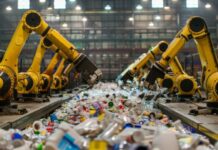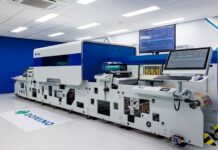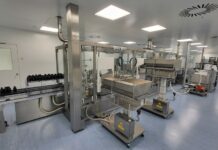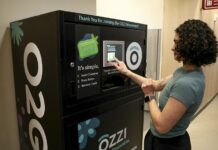The time to come will play a crucial role for both the beverage as well as packaging industries, and, of course, for European consumers. The Environment Committee in the European Parliament is all set to vote on their proposed amendments to the draft EU Packaging and Packaging Waste Regulation-PPWR.
Apart from this, the member countries will be working towards reaching a consensus on a common position. The legislation is going to prominently impact the production and utilisation of beverage packaging, which is why it is extremely important that accuracy is maintained.
Although the intentions behind the PPWR happen to be noble and the EU’s objective of decreasing packaging and packaging waste is indeed commendable, some of the proposed measures being discussed are not as practical as they look, particularly those with regards to reuse and refill.
Their actions could go on to undermine the successful efforts made by beverage manufacturers in order to offer circular packaging solutions.
The European soft drink industry has been making substantial investments in collecting and disposing of its packaging for many years. Furthermore, they have recently made strong commitments when it comes to achieving circularity. But what now? This industry supports the concept of reuse. The fact is that the concepts of reuse as well as refill are valuable additions to the already effective recycling systems in place. Reuse and refill are important components of the solution, but their execution should be based on environmental and also economic considerations, ensuring that they are applied in the right context. It is indeed important to emphasise the value of maintaining compatibility when it comes to recycling, reuse, along with refill in the PPWR.
MEPs and member countries should strongly support that initiative.
It is not advisable to increase reuse and refill targets without conducting a thorough impact evaluation. Additionally, it shouldn’t be encouraged to allow member countries to go past these targets.
It is concerning to see proposals for higher recycling and refill targets for the industry in 2030 and 2040 that lack any additional ecological and economic impact evaluation.
There are valid reasons to be alarmed by this. MEPs as well as member countries should be mindful of the fact that the European Commission’s failure to conduct an in-depth assessment on the effects of the reuse and refill targets has rightfully caused significant criticism from various stakeholders, including the sector, as well as from the European Parliament and its member countries. There is no valid reason to treat non-alcoholic beverages and alcoholic beverages in a different way.
Furthermore, the Council as well as certain Members of the European Parliament- MEPs are currently suggesting the idea of granting member nations the freedom to exceed the previously raised targets. This goes against the European Commission’s penultimate objective of promoting uniformity and also poses a risk of dividing the EU market as a whole.
The outcome will be an assortment of individual national targets, which will dominantly impact Europe’s competitiveness and create challenges for companies when it comes to investment planning.
The fact is that setting targets without any rationale is not advisable. Clear and specific information on the costs and benefits of the proposed measures is required so as to justify them. This is how the European Union can effectively evaluate the real effects of implementing reusable systems across the continent. As per a study by PwC, it is estimated that transitioning to 10% refillable PET across the EU by 2030 would go on to cost more than €16 billion. This represents only a fraction of the entire cost.
In today’s world, consumers have a plethora of reusable solutions that happen to be available to them. This is a world where the conventional returnable reusable bottle is no longer the only system for reusing and refilling. The industry has gone on to implement numerous creative ideas that reduce packaging, such as home soda providers and refill stations in various establishments like hotels, restaurants, and catering services. These initiatives effectively address the growing demand for sustainable consumption and contribute to the reduction of waste from packaging.
It is important to show respect for recycling systems that are functioning well. Additionally, it is crucial to consider the creation of certain well-designed exceptions.
The European Parliament’s ITRE Committee acknowledges that reusable and refillable solutions may not always yield positive environmental outcomes for all types of packaging and in all circumstances. Therefore, it is very significant to establish a system of exemptions for cases where specific environmental along with waste management standards are fulfilled. The purpose of this is to prevent any unintended adverse effects that may arise from the implementation of these targets on circular systems that are already operating effectively. It is also important to ensure that reusable, refillable, and also recycling systems work together in a way that’s harmonious.
So as to meet mandatory collection targets for packaging, the sector must prioritise efficient waste management systems. These systems will help elevate the collection and recycling of packaging. Deposit and Return Systems- DRS can effectively assist in achieving this goal, as demonstrated by countries that have implemented it and consistently achieved collection rates of over 90%. We urge EU decision-makers to reject proposals that would make DRS voluntary.
It is imperative for the sector to achieve ambitious targets for the recycled content as well. In order to achieve the goals, it is crucial for MEPs as well as the member countries to establish a priority access right for particular feedstocks that happen to be used in food-contact packaging that are intended for recycling. This initiative will grant the sector the necessary access to an ample supply of recycled materials, allowing it to engage in closed-loop recycling whenever it is both environmentally and technically feasible.
There is still an opportunity so as to enhance the realism and practicality of the PPWR without compromising on its ambitious nature. The sector is prepared to actively collaborate with the decision-makers from the EU so as to develop a supportive policy framework for packaging for beverages that will lead towards a circular economy.




























